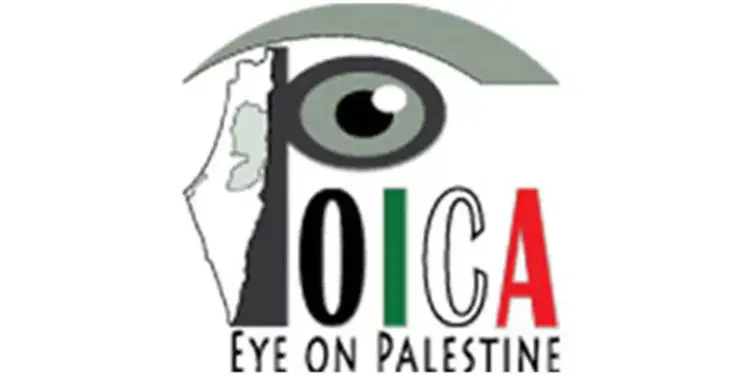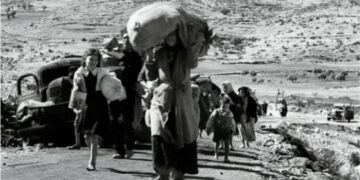Introduction
The recent media attention concerning ongoing negotiations between Israel and Hamas for the release of the captured soldier Gilad Shalit and the exchange of Palestinian prisoners obscures the historical and contemporary reality of routine imprisonment without trial, illegal detainment, human rights abuses and the discriminatory application of law by Israel in the Occupied Palestinian territory. It is estimated that since 1967 nearly 700,000 Palestinians have been arrested by Israel. This figure represents almost 40% of the male population in the West Bank. There are currently around 11,000 Palestinian prisoners in Israeli jails and data indicates that over 850 are not aware of the charges against them whilst 4,820 prisoners have been held without trial. Over 90% of prisoners are from the West Bank and over 30% are married. These statistics make Palestinians the most imprisoned people on earth. The systematic illegal detainment of civilians is a common tool used by former colonial powers, authoritarian regimes and, most recently, as part of the 'war on terror'. Israel routinely arrests and illegally detains men, women and children as part of the infrastructure of occupation. Prisoners are then denied basic human rights such as adequate clothing, food and access to bathroom facilities and suffer from psychological and physical torture. Indeed, over 85% of Palestinian detainees have suffered from torture in detention centers and prisons, and since 2000 over 6,000 children have been detained by the Israeli army.
Administrative Detention
Administrative detention is a common tool used by Israel, as with other colonial regimes, and represents a flagrant violation of human rights. It is estimated that over 750 of the 11,000 Palestinian prisoners are being held under administrative detention, and over 100 are women. According to military order 1229, enacted in 1988, administrative detainment, or imprisonment without trial, is legal in the occupied Palestinian territory and the Israeli military can hold an individual for 6 months in custody on the purposefully ambiguous grounds that 'the security of the area or public security require the detention'. According to figures by the IPS, 22% of persons held under administrative detention are held for less than 6 months, 37% have been held between 6 months to 1 year, and 8% have been held for 2-5 years. The longest period an individual has been held under administrative detention without then being charged is 8 years. Detainees are held without trial and are not told the reason for their arrest. In addition, any defense counsel for the detainee is denied access to examining the evidence for arrest meaning it is virtually impossible to refute any allegations and mount a legitimate defense. Most administrative detainees are held in detention centers in Israel, which violates international humanitarian law (4th Geneva Convention) which states that internment outside of an occupied territory is forbidden. This policy also prevents the victim's family from visiting him/her. It is estimated that over 180 detainees have died since 1967 whilst in custody, often from being denied medical treatment and from harsh methods of torture.
Administrative detention of Children
Children are not exempt from Israeli policies of administrative detention and arbitrary arrest. Under International and Israeli law a minor is defined as being a person under the age of 18. In contradiction to this, military law in the occupied Palestinian territory defines a minor as 16 and under, meaning children between 16-18 are treated as adults by the law. It is estimated that over 330 children are currently in Israeli prisons, with over 190 classified as administrative detainees. The most commonly cited reason for arresting children is rock throwing, yet it is hard to see how this action warrants administrative detention. Arrests of children are made at their family homes, checkpoints and often in the street and can involve blindfolding and handcuffing the child without explaining to him/her the reason for arrest. In reality this practice amounts to state kidnapping. In many cases children are then denied access to a lawyer and are often made to sign confessions in Hebrew, a language they do not understand, which is then used as evidence against them.
The use of a military court system to try civilians means that detainees are denied a fair, impartial and transparent trial. Children as young as 12 have been tried as adults under this military court system, which is shrouded in secrecy, bias and is in contradiction to international humanitarian law.
The Use of Torture
The UN committee against torture has expressed grave-concern about Israeli practices. Such practices include; allegations of the use of torture before, during and after interrogations, interrogating children without a lawyer and without a family member present, detaining and prosecuting 700 children annually, and the use of forced confession to prosecute suspects. Over 85% of Palestinian detainees have been subjected to torture which includes; physical abuse, psychological abuse, solitary confinement, sexual abuse, sleep deprivation and the denial of medical treatment.
Administrative detention, torture and the transfer of Palestinian detainees to Israeli prisons are all illegal under international law. Article 5 of the declaration of Human Rights enshrines the illegality of torture and punishment. The 4th Geneva convention prohibits Israel from transferring detainees away from the occupied Palestinian territory.
Law and Order
Administrative detention is enacted according to the principle of ensuring state security. As Israel has not officially defined this vague term the policy of administrative detention can in reality be applied to any offence, however small? Administrative detention has been used throughout history by colonial powers and authoritarian regimes to crush popular resistance to oppressive rule. This tactic used by Israel in the Occupied Palestinian Territory is no different to historical precedents and as an internationally recognized occupying power, it is one of many strategies used to repress and control the Palestinian population.
The discriminatory application of law is also a glaringly obvious facet of Israeli occupation. Administrative detention is enacted to arbitrarily arrest men, women and children without evidence. Individuals are held for months, if not years, on the basis of suspicion, forced confessions, affiliation to political parties, or for being relatives of individuals involved with certain political parties. The evidence that over 700 individuals, including 300+ children, are currently held in Israeli detention centers without any evidence for their arrest reflects this. Furthermore, only 900 out of the 11,000 Palestinian prisoners have actually been sentenced. This reflects either a crippling inefficiency in the justice system or the discriminatory and arbitrary treatment of Palestinians by that same system.
In contrast, a Jewish settler in the Occupied Territory is permitted to attack, abuse and attempt – and actually murder individual Palestinians in the presence of Israeli soldiers. The video, photographic, and eyewitness evidence against individual settlers for their part in attacks on Palestinians is overwhelming, yet 90% of cases against settlers are not investigated. So whilst a Palestinian minor throwing a stone can expect to be held in an Israeli detention center for 6 months, a Jewish settler firing shots from a machine gun can expect the protection of the Israeli army.
The issue of administrative detention therefore goes much deeper than the ongoing negotiations for the exchange of Gilad Shalit for Palestinian prisoners. It is also important to remember that Shalit is a trained soldier, armed by Israel and participating as part of an occupying power. This is not to justify his capture, but to illustrate that whilst the international community highlights the issue of a captured soldier it ignores the illegal imprisonment of thousands of civilians, including children, who if guilty of a crime should be tried instead of being held arbitrarily on the basis of no evidence without recourse to their legal and human rights.
:::::::::::::::__
[1]Palestinian Prisoners, http://www.miftah.org/Doc/Factsheets/Miftah/English/Prisoners.pdf
[2] Prisoners, Palestine Monitor factsheet – Updated: 17 December 2008, http://www.palestinemonitor.org/spip/spip.php?article9
[3] Palestinian Child Prisoner, The systematic and institutionalised ill-treatment and torture of
[4]Without Trial, Administrative detention of Palestinians by Israel and the Internment of Unlawful Combatants Law. http://www.btselem.org/Download/200910_Without_Trial_Eng.pdf
[5] Press Release on the Occasion of Palestinian Prisoners Day
More than 11,000 Palestinian are still in Prison, of whom 5,671 have been arrested
during 2006, and 3,495 have been arrested during 2005.
http://www.pcbs.gov.ps/Portals/_pcbs/PressRelease/e-Prisoners_Day2007.pdf
Prepared by:
The Applied Research Institute – Jerusalem












